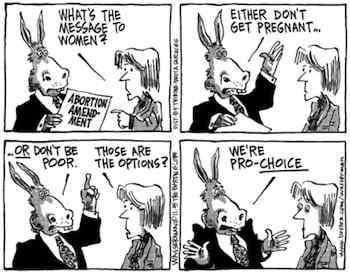- MENU
- HOME
- SEARCH
- WORLD
- MAIN
- AFRICA
- ASIA
- BALKANS
- EUROPE
- LATIN AMERICA
- MIDDLE EAST
- United Kingdom
- United States
- Argentina
- Australia
- Austria
- Benelux
- Brazil
- Canada
- China
- France
- Germany
- Greece
- Hungary
- India
- Indonesia
- Ireland
- Israel
- Italy
- Japan
- Korea
- Mexico
- New Zealand
- Pakistan
- Philippines
- Poland
- Russia
- South Africa
- Spain
- Taiwan
- Turkey
- USA
- BUSINESS
- WEALTH
- STOCKS
- TECH
- HEALTH
- LIFESTYLE
- ENTERTAINMENT
- SPORTS
- RSS
- iHaveNet.com
Bart Stupak

It would affirm a ban on public funding that has been on the books since 1977
Bart Stupak is a Democratic member of the House from Michigan's First Congressional District.
Since the
The ban on public funding for abortion is a long-standing federal policy known as the Hyde amendment. It has been in place since 1977, and its legality has been confirmed by the
Under our amendment, only the public health insurance option and private plans receiving federal subsidies are prohibited from covering abortion services. It does not prevent private plans within the newly created health insurance exchange from offering separate plans with abortion services, and it does not prohibit individuals who are purchasing plans on the exchange with their own money from choosing insurance that offers abortion services. Our amendment specifically states that even those who choose the public option or receive federal subsidies can purchase a supplemental policy with private money to cover abortion services.
Despite claims that our amendment overreaches current law, not one person has been able to show where actual language in our amendment is different from the Hyde language. In fact, the only difference is that it protects the current ability of individuals to obtain abortion services, saying "nothing in this section shall be construed as prohibiting any nonfederal entity (including an individual or a state or local government) from purchasing separate supplemental coverage for abortions" and "nothing in this section shall restrict any nonfederal [health plan] offering entity from offering separate supplemental coverage for abortions." Individuals may purchase abortion coverage using private funds in the exchange, and private insurance companies may offer plans that cover abortion in the exchange.
The main alternative, Rep. Lois Capps's proposal, would have set a new precedent for abortion funding, essentially overturning Hyde language, by (1) mandating at least one plan in the exchange provide abortion coverage, (2) requiring a minimum
Abortion supporters continue to argue that the Capps amendment was a sufficient "compromise" in line with Hyde language. Yet this "compromise" was struck without the agreement of pro-life groups. It is hardly a good-faith compromise when you circumvent the very group whose concerns you are attempting to address. And the Hyde language has never allowed private and public funds to be segregated in the way that the Capps amendment proposed. The Federal Employees Health Benefit Program is a good example. Federal employees pay a portion of their premium each month, and the federal government pays the balance. Current Hyde language does not allow federal employees to apply their premium contributions to abortion services. Because the policies are partially paid for by the taxpayers, no coverage of abortion services is permitted.
Representative Capps and others claim insurance companies will no longer offer abortion services under the Stupak-Ellsworth-Pitts amendment. This claim doesn't add up. Currently, the plans covering the 8 million federal workers and their dependents do not allow abortion coverage, yet the companies offering them still provide abortion coverage through their private plans. Further, if just 20 percent of the roughly 50 million uninsured in the United States chose to purchase plans with abortion coverage, that is 10 million customers that no industry is going to ignore.
Our amendment is also in line with public opinion. Two recent polls, by the
Pro-life Democrats made our problems with the abortion provisions in the healthcare bill clear back in July. Rather than work with us in good faith, pro-choice members chose to ignore our concerns. It was only once they realized they could not pass reform in the House without the support of pro-life Democrats that the leadership was willing to allow a vote on our amendment. In the end, 41 Democrats who voted with us also voted for final passage of the healthcare reform bill, thus enabling it to pass in the House.
Right now, our focus must be on passing healthcare reform legislation, not on overturning more than 30 years of federal policy prohibiting public funding of abortion. I will continue to work with my colleagues to ensure that as we pass legislation that provides access to quality, affordable healthcare for all Americans, we also keep current law: no public funding for abortion.